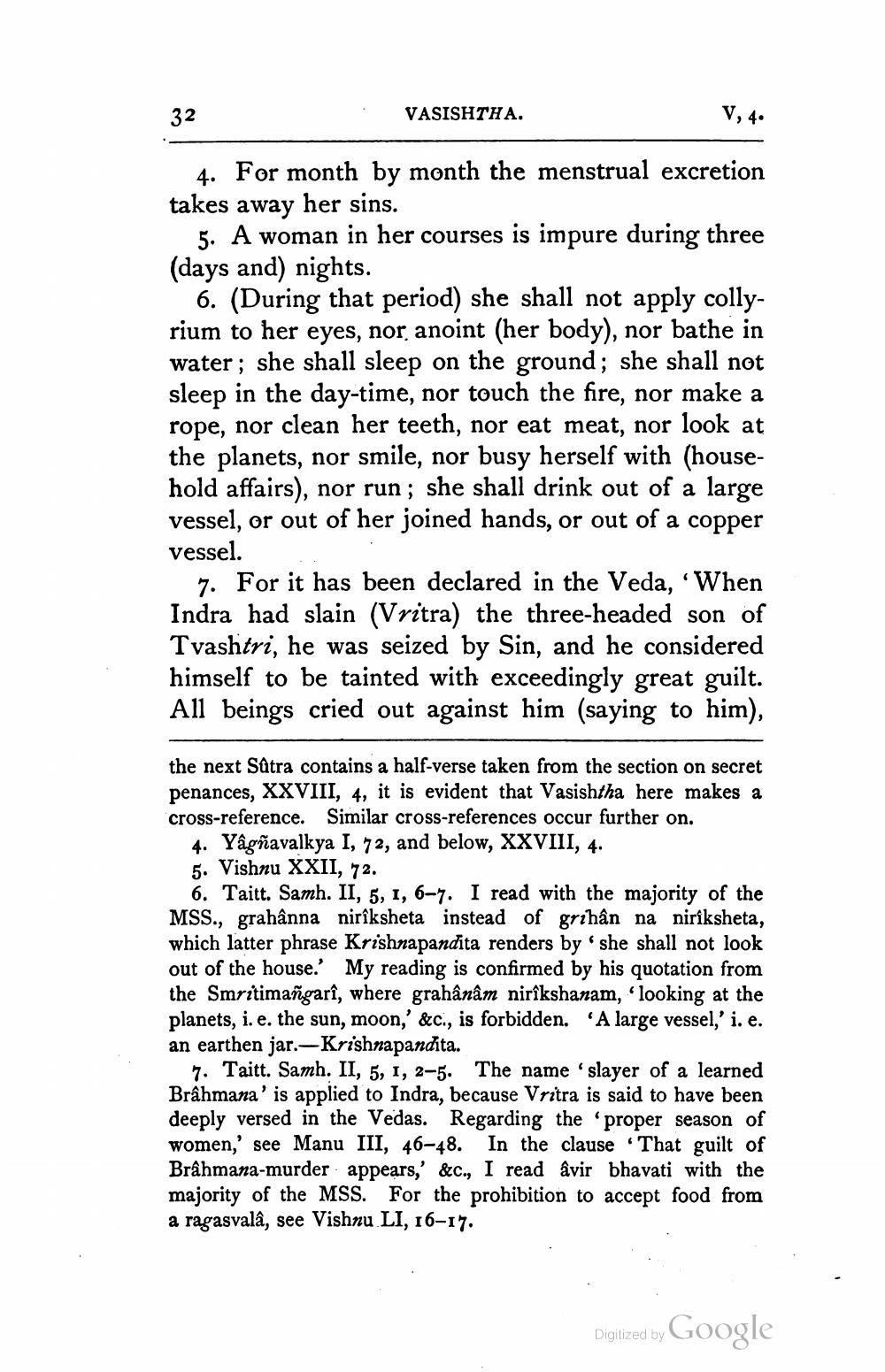________________
32
VASISHTHA.
V, 4.
4. For month by month the menstrual excretion takes away her sins.
5. A woman in her courses is impure during three (days and) nights.
6. (During that period) she shall not apply collyrium to her eyes, nor anoint (her body), nor bathe in water; she shall sleep on the ground; she shall not sleep in the day-time, nor touch the fire, nor make a rope, nor clean her teeth, nor eat meat, nor look at the planets, nor smile, nor busy herself with (household affairs), nor run; she shall drink out of a large vessel, or out of her joined hands, or out of a copper vessel.
7. For it has been declared in the Veda, When Indra had slain (Vritra) the three-headed son of Tvashtri, he was seized by Sin, and he considered himself to be tainted with exceedingly great guilt. All beings cried out against him (saying to him),
the next Satra contains a half-verse taken from the section on secret penances, XXVIII, 4, it is evident that Vasishtha here makes a cross-reference. Similar cross-references occur further on.
4. Yâgñavalkya I, 72, and below, XXVIII, 4. 5. Vishnu XXII, 72.
6. Taitt. Samh. II, 5, 1, 6-7. I read with the majority of the MSS., grahânna nirîksheta instead of grihân na niriksheta, which latter phrase Krishnapandita renders by she shall not look out of the house.' My reading is confirmed by his quotation from the Smritimañgarî, where grahânâm nirîkshanam, 'looking at the planets, i. e. the sun, moon,' &c., is forbidden. 'A large vessel,' i. e. an earthen jar.-Krishnapandita.
7. Taitt. Samh. II, 5, 1, 2-5. The name slayer of a learned Brâhmana' is applied to Indra, because Vritra is said to have been deeply versed in the Vedas. Regarding the proper season of women,' see Manu III, 46-48. In the clause "That guilt of Brâhmana-murder appears,' &c., I read âvir bhavati with the majority of the MSS. For the prohibition to accept food from a ragasvalâ, see Vishnu LI, 16-17.
Digilized by Google
Digitized by




